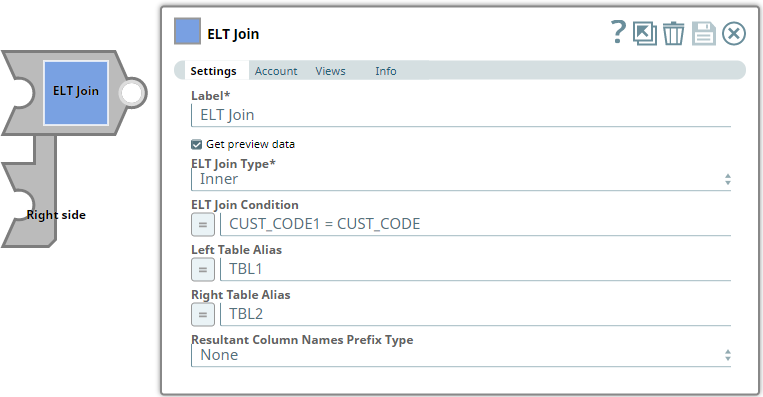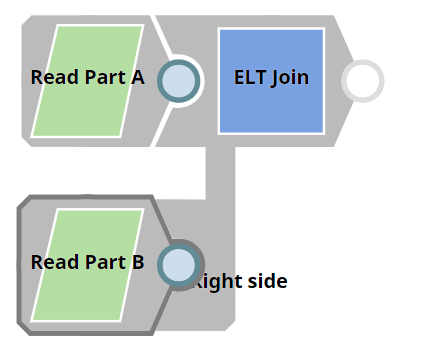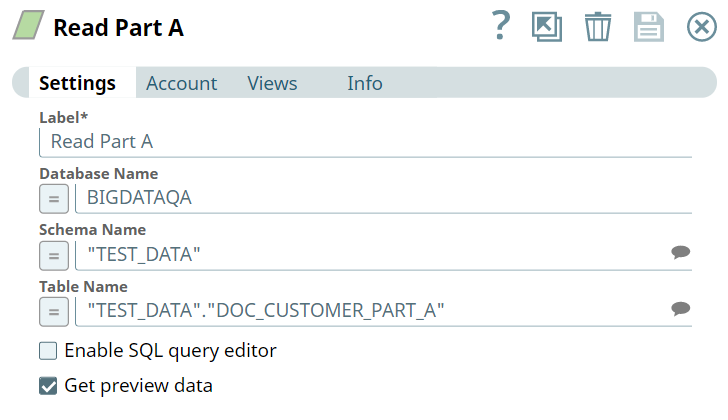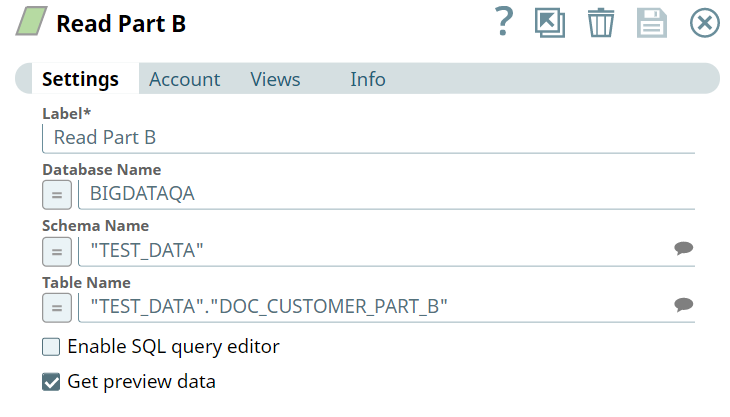In this article
...
Use this Snap to add a JOIN clause to join tables in separate queries coming from the upstream Snaps. This Snap also allows you to preview the result of the output query. You can validate the modified query using this preview functionality.
| Note | ||
|---|---|---|
| ||
Starting from 4.24 GA, ensure to configure an account for this Snap. |
Prerequisites
None.
Limitations
...
None.
Known Issues
...
| Multiexcerpt include macro | ||||
|---|---|---|---|---|
|
Snap Input and Output
| Input/Output | Type of View | Number of Views | Examples of Upstream and Downstream Snaps | Description |
|---|---|---|---|---|
| Input | Document |
|
| The SQL queries referencing separate tables in which you want to add the JOIN clause. |
| Output | Document |
|
| The incoming SQL queries joined with a JOIN clause. The output from executing this Snap varies based on which table is connected to which input view. |
...
Method-2: Dynamic Substitutions
You must enable expressions when using Pipeline parameters for dynamic substitutions. Format the SQL expression, except the Pipeline parameter's reference, as a string.
For example, if you want to use the Pipeline parameter, name, which contains the value of a column in the ELT Join Condition field:
...
We need a query that contains a JOIN clause. This example demonstrates how we can use the ELT Join Snap to build a query with the JOIN clause.
First, we build SELECT queries to read the target tables. To do so, we can use two ELT Select Snaps, in this example: Read Part A and Read Part B. Each of these Snaps is configured to output a SELECT * query to read the target table in the database. Additionally, these Snaps are also configured to show a preview of the SELECT query's execution as shown:
| Read Part A Configuration | Read Part B Configuration |
|---|---|
...



